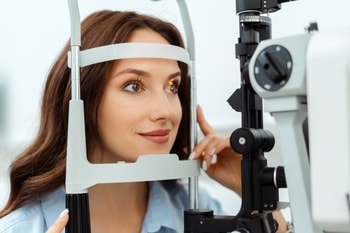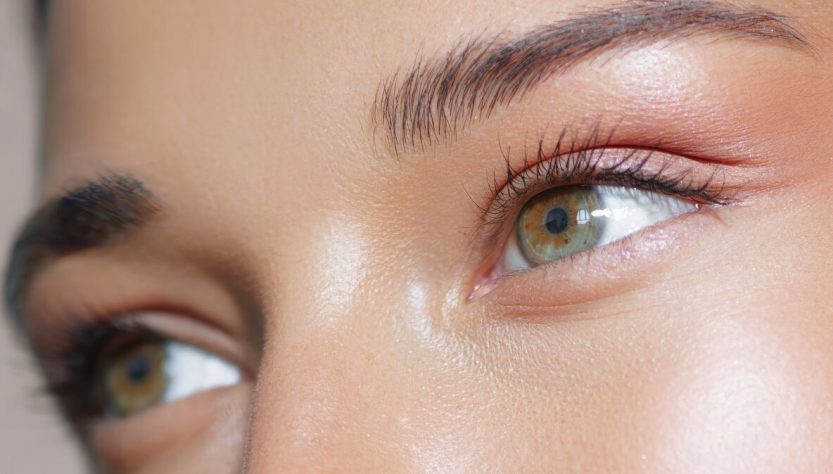Laser eye surgery has become popular for people looking to improve their vision. Whether you’re thinking about LASIK, a form of laser eye surgery, or other types of corneal refractive surgeries, one of the most common questions patients ask is, “Does laser eye surgery hurt?” It’s normal to feel a little nervous about what to expect, especially regarding the potential for pain or discomfort. In this blog, we’ll deeply dive into the entire experience, from the procedure to the recovery process, and answer whether laser eye surgery hurts.
Understanding Laser Eye Surgery
Laser eye surgery is a medical procedure that uses advanced laser technology to reshape the eye’s cornea, improving vision and reducing the need for glasses or contact lenses. LASIK is the most common form of laser eye surgery, though there are other types, like PRK or LASEK. Laser eye surgery aims to correct common vision problems such as nearsightedness, farsightedness, and astigmatism.
The procedure typically takes only a few minutes per eye, but patients will spend some time preparing beforehand. The excimer laser is used to reshape the cornea, and this advanced laser technology is incredibly precise, ensuring that the procedure is safe and effective for most people.
The Big Question: Does Laser Eye Surgery Hurt?
The answer to laser eye surgery pain is generally reassuring: No, laser eye surgery doesn’t hurt. But, as with any surgical procedure, you may experience mild discomfort, especially in the first few hours following the surgery. The level of discomfort varies from person to person, but most patients report feeling little to no pain during the procedure itself.

- Before the Surgery:
One of the key reasons laser eye surgery doesn’t hurt is using numbing eye drops. The eye doctor will place these drops into your eyes to completely numb the surface of your eyes. This makes the procedure virtually painless. Some people may feel a slight pressure sensation when the laser treatment begins, but this is not typically painful. You may also be given a mild sedative to help you feel relaxed before the surgery. - During the Surgery:
You won’t feel pain during the procedure due to the anesthetic eye drops. You may feel pressure when the surgeon creates the corneal flap, but this should not be painful. You might also experience slight discomfort or pressure during the excimer laser treatment, but most patients do not report this as painful. It’s also normal to feel a little anxious during the surgery, but your LASIK surgeon and the surgical team will be there to guide you through the process. - Immediately After the Surgery:
Once the LASIK surgery is complete, most patients feel fine quickly. However, you may experience mild discomfort in the first few hours after the surgery. This can include dryness, itching, or a gritty eye sensation. These sensations are common and usually subside within a few hours. - The Healing Process:
While there’s very little pain during the procedure, the healing process can involve mild discomfort as your eyes adjust. Some patients may experience mild to moderate postoperative inflammation, which can cause temporary discomfort. You may also be given eye drops to help heal and minimize discomfort during recovery. As your eyes heal, you should notice improvements in your vision, but it may take a few days to a few weeks for your eyes to fully recover.
LASIK Surgery vs. Other Types of Eye Surgery
The level of discomfort you experience can also depend on the type of eye surgery you have. LASIK laser eye surgery, for instance, is known for being relatively quick and pain-free due to numbing drops. In contrast, PRK (photorefractive keratectomy) may cause more discomfort during recovery, as the top layer of the cornea is removed and takes longer to heal. However, both LASIK and PRK have high success rates and are designed to improve your vision.
Some people might also consider corneal refractive surgery for other vision problems. Regardless of the specific procedure, anesthetic drops to ensure the surgery is not painful.
What Happens After Surgery?
The postoperative inflammation and discomfort you may experience after laser eye surgery is typically temporary. Most patients recover within a few hours, though it can take weeks post-surgery for your vision to stabilize completely. During this time, following your LASIK surgeon’s aftercare instructions is crucial, including using eye drops and wearing protective eyewear when necessary.
The first 24 hours after surgery are particularly important. You might experience some mild discomfort, including blurry vision or light sensitivity. This is completely normal, and it should improve as your eyes heal. If you ever feel like you’re experiencing severe pain, you should contact your eye doctor or LASIK surgeon immediately. Most patients will not experience significant pain, but caution is always important.
How Long Does It Take for Your Eyes to Heal?
The recovery process varies from person to person, but most patients notice improvements in their vision within the first few hours after the surgery. Many people return to work or daily activities the day after the surgery. However, avoiding rubbing your eyes or exposing them to harsh conditions, such as smoke or dust, is essential while healing.
You may notice mild discomfort in the first few weeks as your eyes adjust. Most patients experience complete healing within a few weeks to a few months. You’ll follow up with your LASIK surgeon to ensure everything is healing properly during this time. If you’re wondering about the chances of experiencing severe pain or other complications, the good news is that this is very rare. Laser eye surgery is one of the safest medical procedures available.
Tips for Minimizing Discomfort After Surgery
While laser eye surgery is generally not painful, you may experience mild discomfort during recovery. The goal is to ensure you heal as quickly and comfortably as possible. Here are some essential tips to help minimize discomfort after LASIK eye surgery:
Follow Your Surgeon’s Aftercare Instructions
After LASIK eye surgery, it’s important to follow the instructions provided by your LASIK surgeon. These guidelines are designed to reduce the risk of infection and promote healing. If your doctor recommends certain activities or restrictions, such as avoiding rubbing your eyes or staying away from dusty environments, follow them closely. Adhering to these instructions can significantly reduce the chances of experiencing any laser eye surgery moments during recovery.
Use Prescribed Eye Drops Regularly
One of the most important things you can do to minimize discomfort after LASIK surgery is to use the eye drops prescribed by your surgeon. These drops are designed to lubricate your eyes, reducing dryness and the feeling of grittiness that some people experience post-surgery. Keeping your eyes well-moisturized can help prevent any sensations that might hurt LASIK eye surgery more than expected. If your surgeon prescribed numbing eye drops or anti-inflammatory drops, use them as directed for optimal comfort.
Rest Your Eyes Frequently
After the procedure, giving your eyes the time they need to heal is essential. This means avoiding activities that might strain your eyes, such as long screen time or reading. Take regular breaks if you’re working on a computer or watching TV. A good rule of thumb is the 20-20-20 rule: every 20 minutes, look at something 20 feet away for 20 seconds. Resting your eyes this way helps reduce any irritation or pressure that could lead to painful laser eye surgery experiences.
Wear Sunglasses Outdoors
After LASIK surgery, your eyes may be more light-sensitive, especially in the days following the procedure. To minimize discomfort and protect your eyes from harsh lighting, it is a good idea to wear sunglasses whenever you go outside. Sunglasses will help reduce any mild discomfort caused by bright sunlight and prevent potential irritation or painful laser eye surgery moments.
Use a Mild Sedative if Recommended
Some people experience a bit of anxiety or stress after LASIK surgery. While the procedure itself is quick and generally pain-free, the idea of recovery can be overwhelming for some. If you feel that you’re experiencing severe pain or discomfort, consult your eye doctor about whether a mild sedative might be helpful. This can help you relax and reduce overall discomfort, smoothing the healing process. However, this is typically unnecessary for most patients who find the discomfort manageable.
Is LASIK Surgery Worth It?

Though some mild discomfort may be part of the recovery process, most patients agree that the benefits of laser eye surgery far outweigh any temporary discomfort. If you’ve been thinking about LASIK surgery hurt or wondering whether it’s worth it, consider this: the procedure has a high success rate, and most people experience a significant improvement in their vision with minimal pain.
Conclusion
So, does laser eye surgery hurt? The answer is a resounding no for most people. The procedure is generally painless due to anesthetic eye drops, and the discomfort you may feel afterward is typically mild and temporary. With the right care and attention, your eyes should heal quickly, and you’ll begin to experience the improved vision that so many people love. Whether you choose LASIK eye surgery or another type of laser eye surgery, you can rest assured knowing that your vision will improve with minimal pain.
If you’re unsure or have concerns, talk to your eye doctor or LASIK surgeon about what you can expect from the procedure. They will help guide you through the process and ensure you have all the information you need to make an informed decision. Remember, your vision is worth it!
References
https://www.medicalnewstoday.com/articles/laser-eye-surgery
https://www.healthline.com/health/does-laser-eye-surgery-hurt
https://www.researchgate.net/publication/382617983_Does_Laser_Eye_Surgery_Hurt

